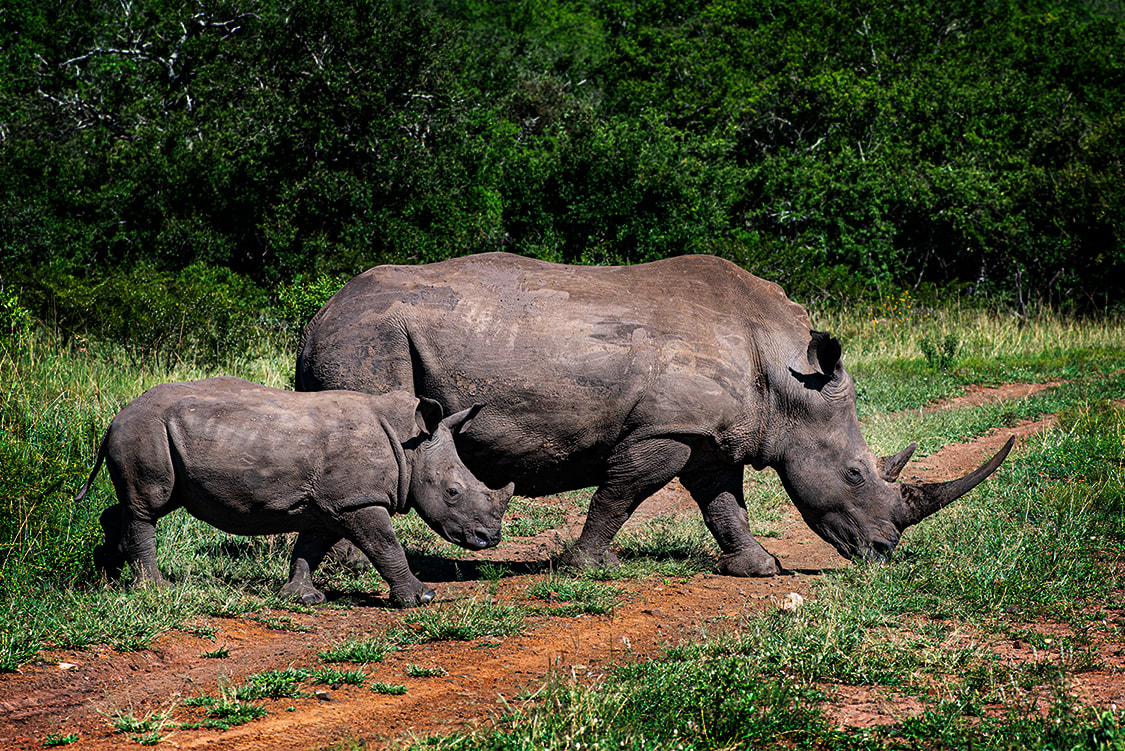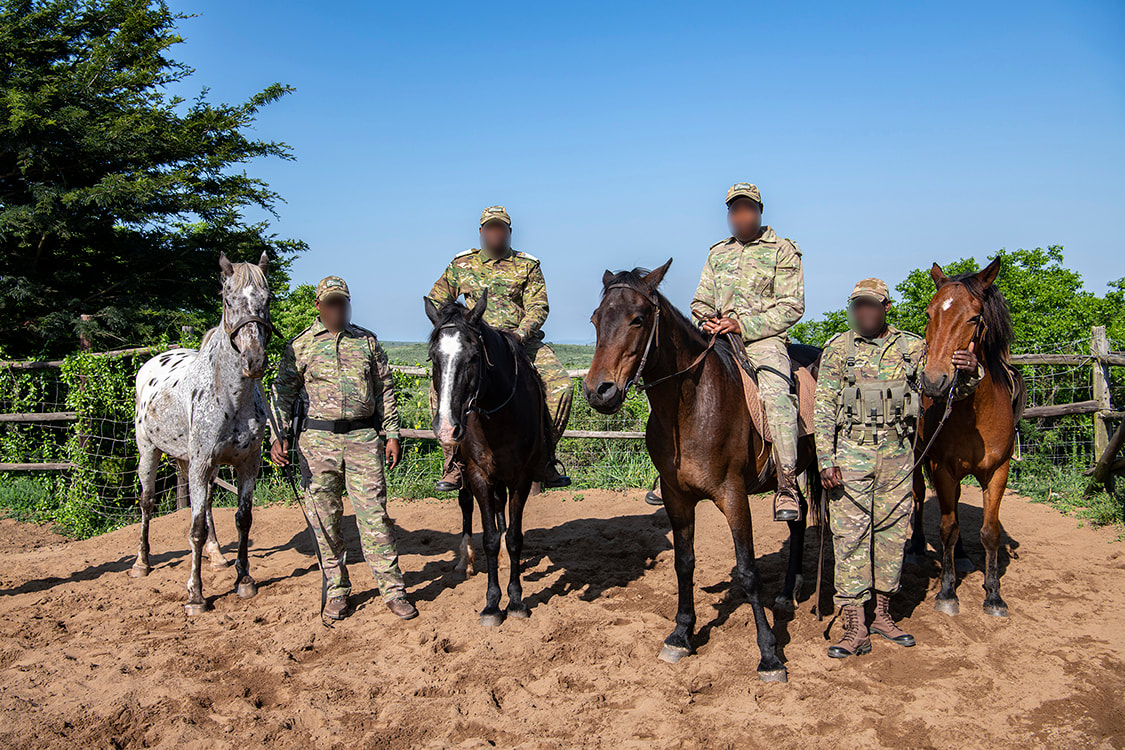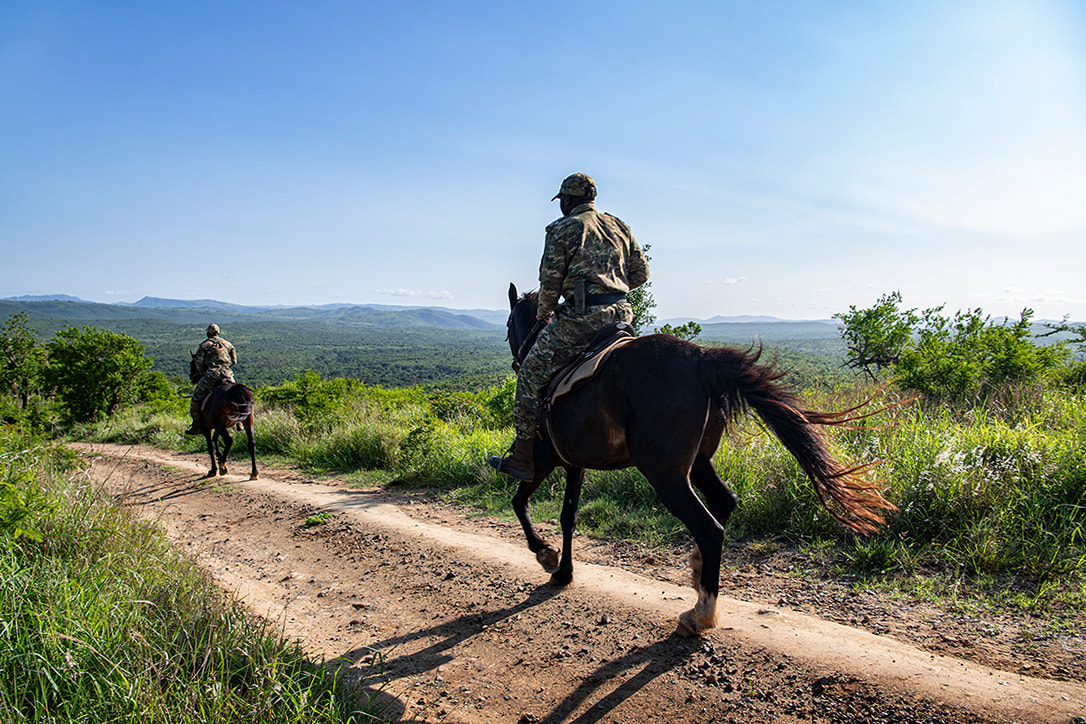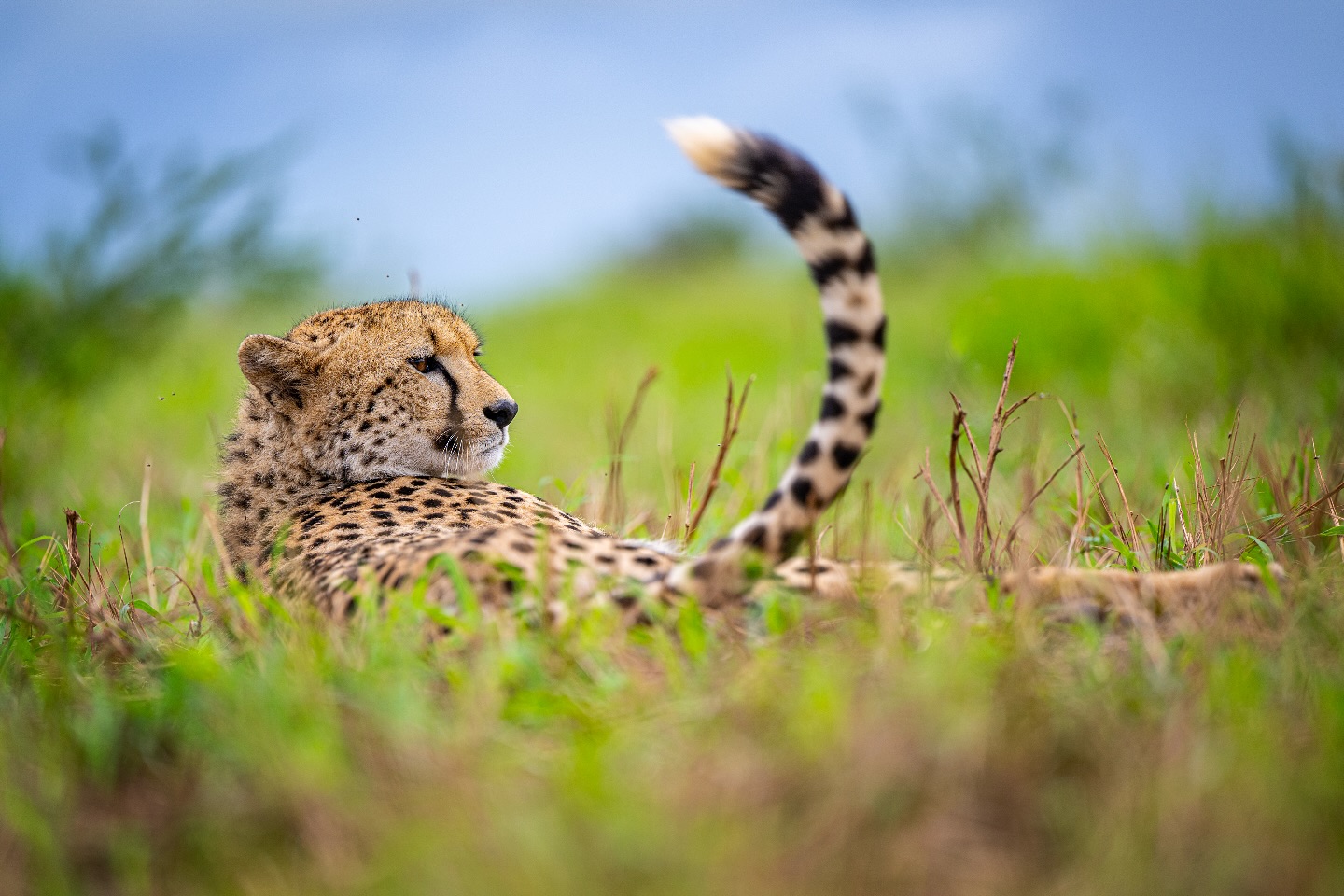Stories:
"Arms pipeline, corruption, law loopholes and the anti-poaching mounted heroes."
Rhinos have a distinctly piercing cry, once heard, it is hard to forget. ‘A rhino’s screams and bellows of torment when their horns are being hacked off while still alive will reach deep into your heart and soul. It will leave you aching and hopeless’, describes chief ranger in charge of the local anti-poaching mounted unit of the Ezemvelo KZN Wild organisation, and whose name can not be mention for safety reasons.
In 2012 poachers entered Thula Thula Private Game Reserve, shot and badly wounded defenceless ‘Thabo’. Thabo, who was a 3-years-old orphan at the time, was lucky and made a full recovery. The assault on Thabo was not the first poaching incident at Thula Thula. A few years back, the game reserve owner Françoise Malby-Anthony witnessed how poachers brutally butchered a female rhino called Heidi to remove her horns. ‘They turned her beautiful face into a gruesome mess of blood and flesh. She was alive, breathing and feeling rhino when they did it’, said heartbroken Françoise.

Since 2000 rhino poaching has developed from a small scale industry into an immense commercial slaughter, and since 2008 South Africa, which homes more than 75% of the world’s rhino population, has become the most popular place for poaching.
Countless organisations have tried different approaches, but poaching still ensues. The poachers have become more organised, have more resources, access to high calibrate guns equipped with silencers and more efficient methods of poaching.
In April 2019, after a four-year investigation by the Conflict Awareness Project (CAP), an international organisation that investigates arms traffickers, uncovered evidence of a global criminal enterprise gunrunning network. The gunrunning network, referred in the report as ‘The Rhino Rifle Syndicate’, channeled thousands of high-calibre sporting rifles from Europe and the U.S. to South African poaching kingpins, which have resulted in a massive poaching crisis worldwide.
According to the CAP investigation report, the Rhino Rifle Syndicate is responsible for providing poaching teams in Mozambique and South Africa with sophisticated rifles manufactured in the Czech Republic. These rifles were originally designed and marketed to kill big game, and they have caused devastation in the Kruger National Park and other private game reserves across South Africa.
Reports show how poachers have killed 8,000 rhinos over the last ten years, nearly two every day, with no official arrests or prosecutions. The CAP investigation also uncovered many of the members of the gunrunning network include business elites, government officials, police, safari operators, arms dealers, intermediaries and local poaching bosses.

Project Rhino, an association of leading wildlife conservation agencies as well as anti-poaching specialists, is equipping and supporting Horse Units at selected game reserves in KZN. A fully donor-dependent, the Anti-Poaching Mounted Rangers Unit has been set up at Hluhluwe-iMfolozi Park [HiP] to assist in combatting wildlife crime.
Fighting rhino poaching in remote areas has brought changes in recent years, but horses have been used for capture and protection in the Hluhluwe-iMfolozi Park for several decades now.
The rangers saddle up and do a roundabout 30km on the fence lines, road corridors and game trails, in a time where a foot soldier can only achieve a third of that.
Rangers are armed with radios that connect the unit to the session, and the ranger can then call for more ground support as well as arial surveillance. These mounted rangers are able to patrol off-road and have a higher vantage point, helping them to see above the long summer grass.
Response time is also much shorter for a mounted ranger, and as a result it improves the chances of a poacher’s apprehension before a rhino becomes a statistic.
The main consumers of rhino horn are the Vietnamese people, who poached the last of the rare one-horned Javanese Rhinos all around Vietnam in 2010 [only 67 Javan Rhinos left in the world], and now uses South Africa to supply their growing demand.
For the Vietnamese, the possession of a Rhino horn is a sign of wealth and high status. The richer the individual Vietnamese becomes, the greater the demand for horn grows.
The Anti-Poaching Mounted Rangers Unit in South Africa is mainly supported by sponsors and NGOs, but it would not be possible to survive without the major funding from ‘Great Plains Conservation’ foundation and volunteers from private sectors. In most of the wilderness, mounted rangers remain the most effective means of ground support and patrol. The unit hopes to continue to put chains on the poaching corporates by using the practical four-legged equine approach to save our rhinos.

In 2016 tragedy struck again, when poachers broke into the Thula Thula’s rhino orphanage and savagely killed two calves for their little horns. ‘It was the worse and most devastating event ever to occur in Thula Thula’s history’, said Françoise on a recent interview.
As a result of this brutal attack Mrs Malby-Anthony started the Thula Thula Fund, a foundation dedicated to protect and preserve the local rhino population and all the wildlife in the game reserve. A full-time anti-poaching unit of armed rangers, together with a K9 Unit operates day and night in order to prevent and fight any wildlife crime in the game reserve.
Unfortunately, poaching attempts are still happening, but the anti-poaching unit’s efforts keep successfully combating these attacks to minimise the wildlife casualties. The rate at which rhinos have been poached by humans for their horns the last decades will bring the species to their extinction in 10-years time.
Thabo and other rhinos at the reserve are under a 24hour guard and wear a satellite collar around their ankle.
http://www.projectrhinokzn.org
Join LensTraveller On A Journey Of Discovery. Stay updated with the latest travel adventures, inspirations and insights.
*By subscribing you agree to our Terms &Conditions and Privacy & Cookies Policy.
























